
Spilomelinae is a very species-rich subfamily of the lepidopteran family Crambidae, the crambid snout moths. With 4,132 described species in 340 genera worldwide, it is the most speciose group among pyraloids.

Hypena is a genus of moths in the family Erebidae. It was first described by Franz von Paula Schrank in 1802. These non-migratory moths overwinter as pupae and almost never come to bait as adults.

Cosmosoma is a genus of tiger moths in the subfamily Arctiinae. The genus was erected by Jacob Hübner in 1823.
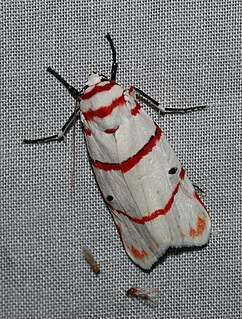
Cyana is a genus of moths in the family Erebidae. Species are well distributed in Africa, Madagascar, China, India, Sri Lanka, Myanmar, Sumatra, Java and Borneo. The genus was erected by Francis Walker in 1854.
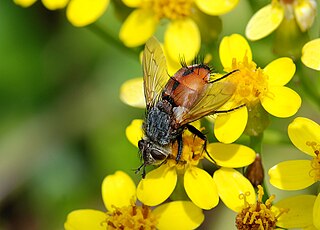
Tachina is a genus of large flies in the family Tachinidae. There are approximately 600 species worldwide. Most have larvae that are parasitoids of Lepidopteran caterpillars.

Virbia is a genus of tiger moths in the family Erebidae. The genus was erected by Francis Walker in 1854.

Glyphodes is a genus of moths of the family Crambidae described by Achille Guenée in 1854.
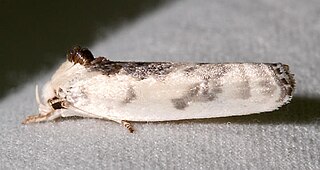
Antaeotricha is a genus of moths. It is the largest genus in the subfamily Stenomatinae, numbering over 400 species in the Western Hemisphere.
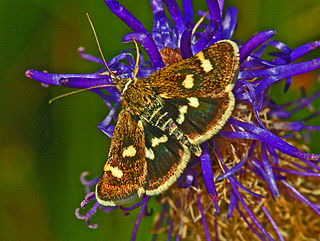
Odontiinae is a subfamily of moths of the family Crambidae. The subfamily was described by Achille Guenée in 1854.
Virbia ampla is a moth in the family Erebidae. It was described by Francis Walker in 1865. It is found in Mexico.
Virbia brevilinea is a moth in the family Erebidae. It was described by Francis Walker in 1854. It is found in Brazil.
Virbia divisa is a moth in the family Erebidae. It was described by Francis Walker in 1854. It is found in Brazil.
Virbia dotata is a moth in the family Erebidae. It was described by Francis Walker in 1865. It is found in the Amazon region.
Virbia ferruginosa, the rusty holomelina, is a moth in the family Erebidae. It was described by Francis Walker in 1854. It is found from Nova Scotia to British Columbia in Canada. In the United States it is found from the northeast and upper Midwest, south to Virginia, Mississippi, Missouri and Louisiana.

Virbia laeta, the joyful holomelina, is a moth in the family Erebidae. It was described by Félix Édouard Guérin-Méneville in 1844. It is found in North America from New Brunswick south to Florida and west to Minnesota and south to Texas. The habitat consists of pine woodlands.
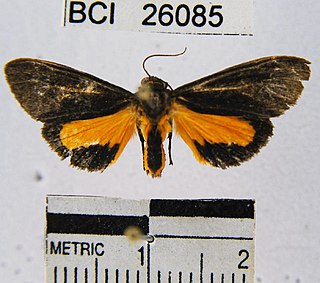
Virbia mentiens is a moth in the family Erebidae. It was described by Francis Walker in 1854. It is found in Venezuela and possibly Costa Rica.
Virbia subapicalis is a moth in the family Erebidae first described by Francis Walker in 1854. It is found in Brazil, Ecuador, Peru, Guyana, Suriname, Venezuela and Bolivia.
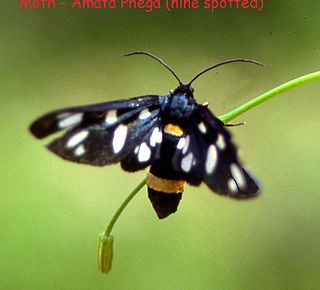
The Syntomini are a tribe of moths in the family Erebidae. The tribe was erected by Gottlieb August Wilhelm Herrich-Schäffer in 1846.

Margaroniini is a tribe of the species-rich subfamily Spilomelinae in the pyraloid moth family Crambidae. The tribe was erected by Charles Swinhoe and Everard Charles Cotes in 1889.











